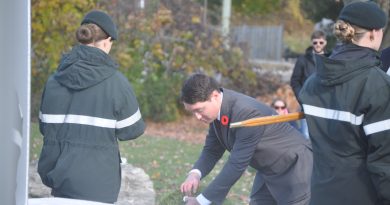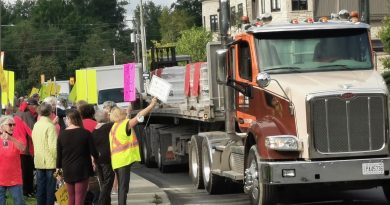Transit Deficit Remains City’s Biggest Budgetary Problem
By David Brown, Rideau-Jock Councillor
Every year, from September to December, Ottawa City Council and senior staff members are fully engaged in drafting and ultimately passing the annual municipal budget for the upcoming year. Councillors, including myself, are now neck-deep in “budget season.”
It should come as no surprise to those reading this that the cost of living across our country is high and that is one of the reasons why I have repeatedly committed to keeping taxes as low as possible while maintaining the City’s core services. My commitment remains unchanged this year.
My team and I have been hard at work to identify inefficiencies in the City of Ottawa budget as an organization. I have had multiple meetings over the last month with the mayor and various senior leadership staff where I proposed hundreds of millions of dollars in prospective savings and efficiencies to keep costs low for residents.
My intentions were made clear: I will continue to work to keep taxes low and cannot support a budget that does not focus on enhancing core services and seek to build on $153 Million in savings that we have already found.
As I have mentioned in my previous articles, the deficit faced by OC Transpo amounts to $125 Million next year. The transit deficit remains the biggest budgetary problem for the City of Ottawa. Through my advocacy for finding efficiencies, I proposed that we recalibrate the transit funding model to be a 50-50 fare-to-levy ratio rather than the current 32-68 ratio that punishes taxpayers. This would mean that transit service in Ottawa would be funded half by fares and half by taxpayers because I believe that transit riders should pay their fair share for the transit services that they receive.
While this may be an unpopular opinion for some, after having spoken to many residents, I cannot in good conscience ask them to continue pay transit taxes while there are only two bus routes that serve the entirety of Ward 21.
I will continue to focus on ensuring that Ward 21’s local priorities are advanced in next year’s budget and through the upcoming Rural Summit in November. This includes money for roads, upgraded intersection traffic infrastructure, and securing funding to fix traffic issues, such as trucks in Manotick and chronic speeding.
As we progress through the budget process, I look forward to providing updates and, hopefully, positive news in the weeks to come. From now until Christmas, my focus will be on a budget that strikes a balance between the priorities and needs of residents from Ward 21 and across Ottawa.





